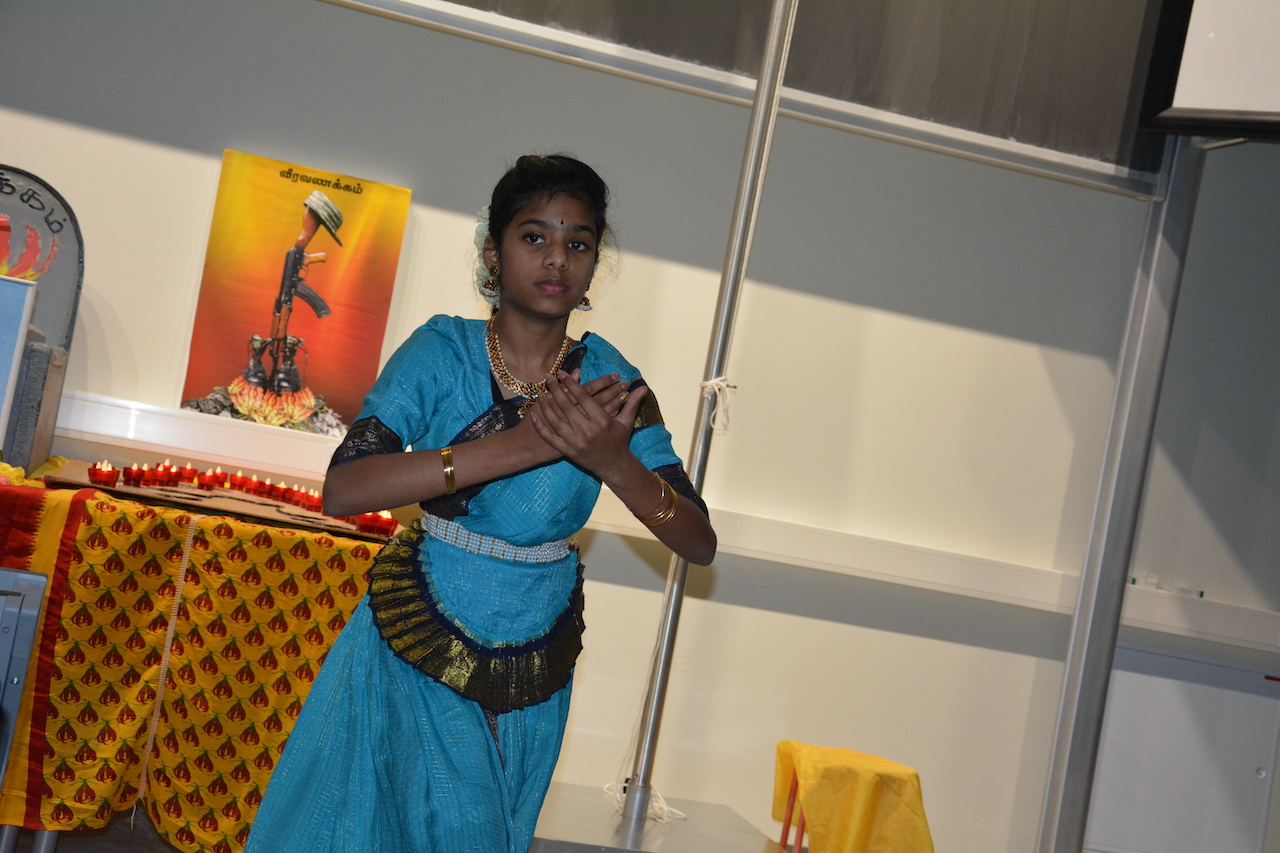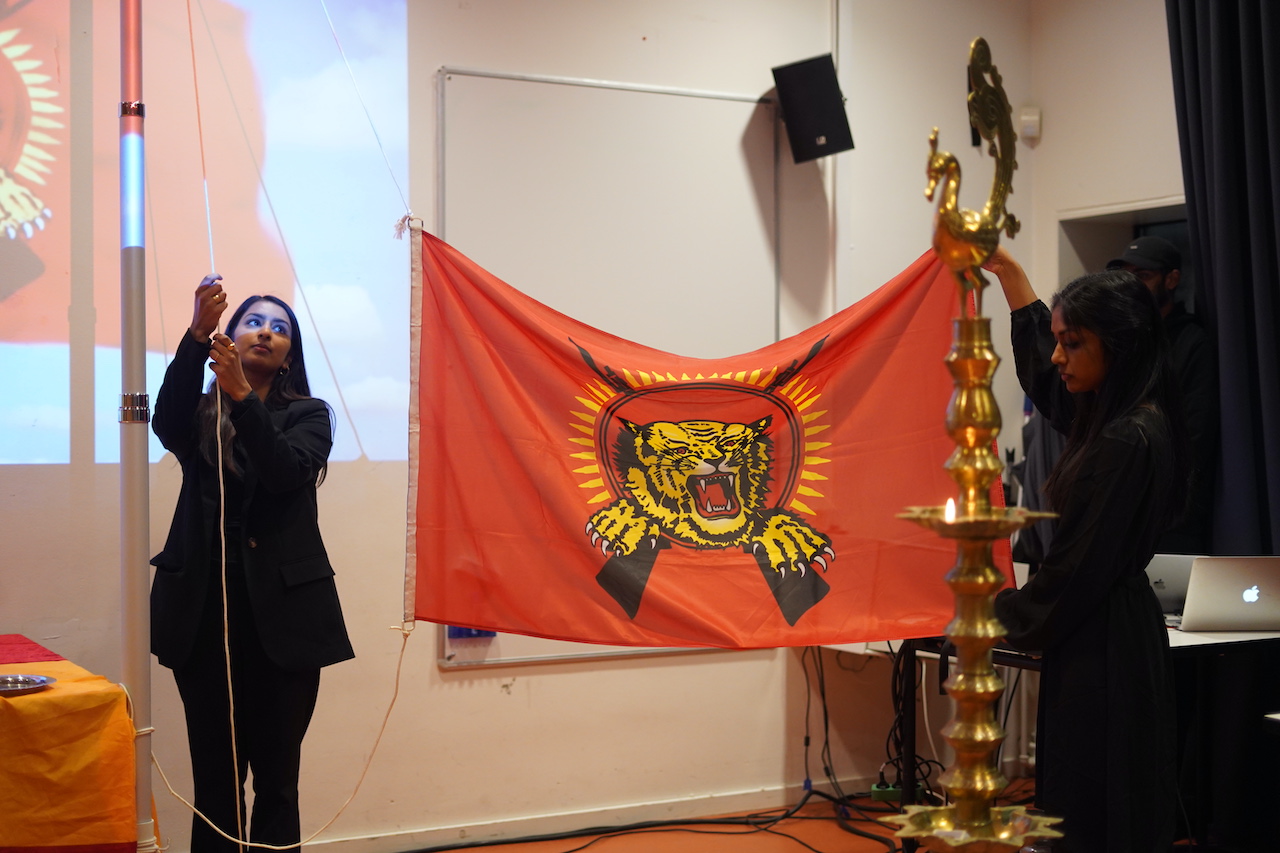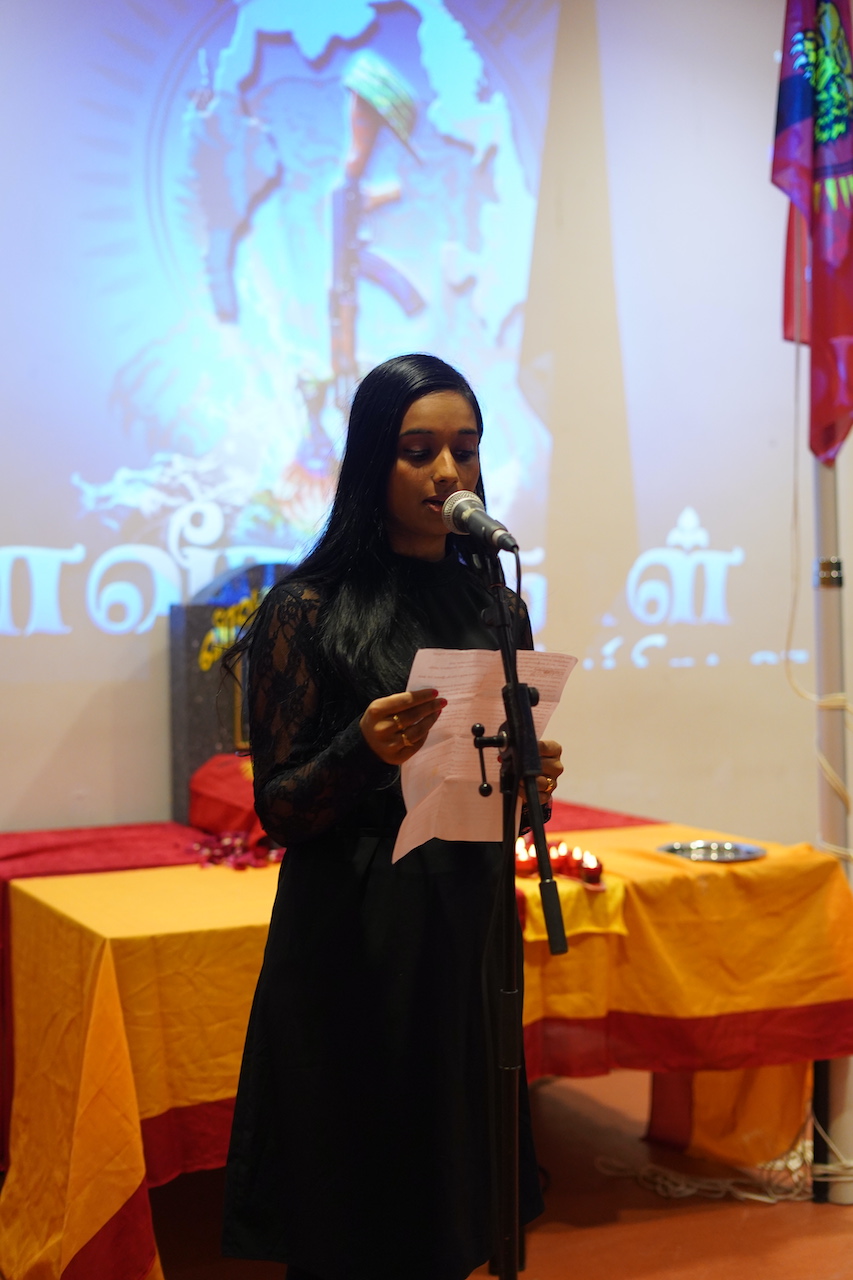Sri Lanka has refused to comply with European Union conditions for the extending of GSP+ trade concessions, calling them ‘insulting’.
The EU had called on Sri Lanka to provide written confirmation by July 1 that the country was willing to comply with 15 human rights related conditions in order for the trade concessions to be extended by another 6 months.
Sri Lanka criticised the EU's warning to withdraw the trade benefits, with the foreign ministry in Colombo complaining that Europe was setting "unattainable targets".
Sri Lankan President Mahinda Rajapaksa is reported to have rejected the demand at a Cabinet meeting, saying he would not compromise the country’s sovereignty for the sake of the US$ 150 million by which amount the country would benefit under the GSP + facility, reported the Daily Mirror.
The President stated that the EU had no right to interfere in the matters of a sovereign state, reported the Sunday Leader.
He is reported to have declared the conditions to be related to “internal political matters” with “no relevance whatsoever to international trade”.
"This is more dictatorial than how the colonial rulers of the past treated us," said Economic Development Minister and Senior Presidential Advisor Basil Rajapaksa.
"We cannot be bullied into submission. We can stand on our own and resist these conditions," he told the Sunday Times.
The President was also quoted as having told the Cabinet that Sri Lanka does not need the GSP+ concession, even though it is estimated that 100,000 workers will be directly affected if the agreement is not extended.
External Affairs Minister G.L. Peiris echoed the President’s reassurance that Sri Lanka could manage without the concession. “The garment industry is strong. When the quota period ended, many speculated that this would be the end of the industry. But, we were resilient. We have creativity and entrepreneurship; the resilience to adapt and create ways in which we can increase productivity and revenue,” he told a press conference.
Government spokesman Keheliya Rambukwella said the government would arrange an alternate scheme to ensure Sri Lankan exporters do not lose competitiveness.
Peiris also informed a press meet that it was not the role of the EU to interfere in the sovereignty of Sri Lanka and that the country cannot accept the conditions put forward by the EU.
“To fulfill the conditions they are asking of us, we would have to change the constitution and brush aside the decisions of the highest court in the country,” he was quoted by the Sunday Leader as saying. “We cannot surrender our decision making power to a foreign government. I don’t think even the public will agree to this or ask us to fulfil these conditions”.
"These conditions are unacceptable. They are an insult to every citizen of this country," Rambukwella told reporters in Colombo. "We must put the EU demand in the dustbin."
The EU wanted Sri Lanka to relax some of the provisions of its draconian Prevention of Terrorism law, which was not possible, AFP quoted Rambukwella as saying. He reportedly added that the EU conditions affected internal security.
Peiris reportedly told the Sri Lankan Cabinet that Denmark and Spain took a rigid stand against Sri Lanka while Italy supported the country on this issue at the EU, the Daily Mirror said.
According to the paper, the German Ambassador and the British High Commissioner had informed Peiris that their countries were not in favour of the EU decision.
Initially, media reports in Sri Lanka, citing government sources, in mid June claimed that the European Union had agreed to extend the GSP+ tariff concessions for a further 6 months beyond the initial cancellation date of August 15.
The reports drew a strong response from the EU, which said, "contrary to these articles, the date of 15 August on which Sri Lanka would cease to benefit from GSP Plus will not be extended unconditionally."
The EU's executive arm, the European Commission, insisted on "significant improvements on the effective implementation of the human rights conventions" for the island to continue enjoying the trade benefits.
Sri Lanka had sent two senior delegations to Brussels in March and May this year to try and negotiate the EU decision to withdraw the GSP+ concessions. While the delegations had had several meetings with EU representatives, they were unable to get the decision changed.
Following the delegations, EC Vice President Catherine Ashton wrote a two page letter to Peiris, saying "……following an assessment of the meeting with Attorney General Peiris on May 20-21 and of the further information which your Government has supplied, it is not yet possible to conclude that Sri Lanka is, at this time, effectively implementing the provisions of the International Covenant on Civil and Political Rights and the UN Convention against Torture."
The letter adds, "The European Commission notes the clear willingness on the part of Sri Lanka to take further additional steps to address without delay outstanding human rights issues and stands ready to work with you on this. We are prepared to propose to the Council of the European Union that it decides to maintain GSP Plus preferences for a limited additional period subject to a clear commitment by your Government to undertake the actions listed in the annexe to this letter within a six months time frame beginning July of this year.
The Generalised System of Preference (GSP) is a trade agreement in which the European Union gives 176 countries and territories, preferential access to the EU market.
By reducing the tariff on goods entering the market, the EU’s main priority is to reduce poverty and promote sustainable development and good governance. There is no expectation or requirement that this form of access is reciprocated.
Under GSP+, Sri Lanka receives, among 15 other countries, additional benefits, which can be withdrawn if the EU finds that the country does not respect the criteria for eligibility.
The agreement, which is subject to renewal every three years, places emphasis on human rights and labour laws within the country.
Sri Lanka has hugely benefited by the opportunities offered by GSP+, especially in the clothing and fisheries sector. In 2008, the imports to EU from Sri Lanka totalled 1.24 billion Euros.
Sri Lanka gains about 150 million dollars annually due to preferential tariffs, according to business estimates.
These benefits will be withdrawn on August 15 unless Sri Lanka makes a written commitment by July 1, according to the EU.

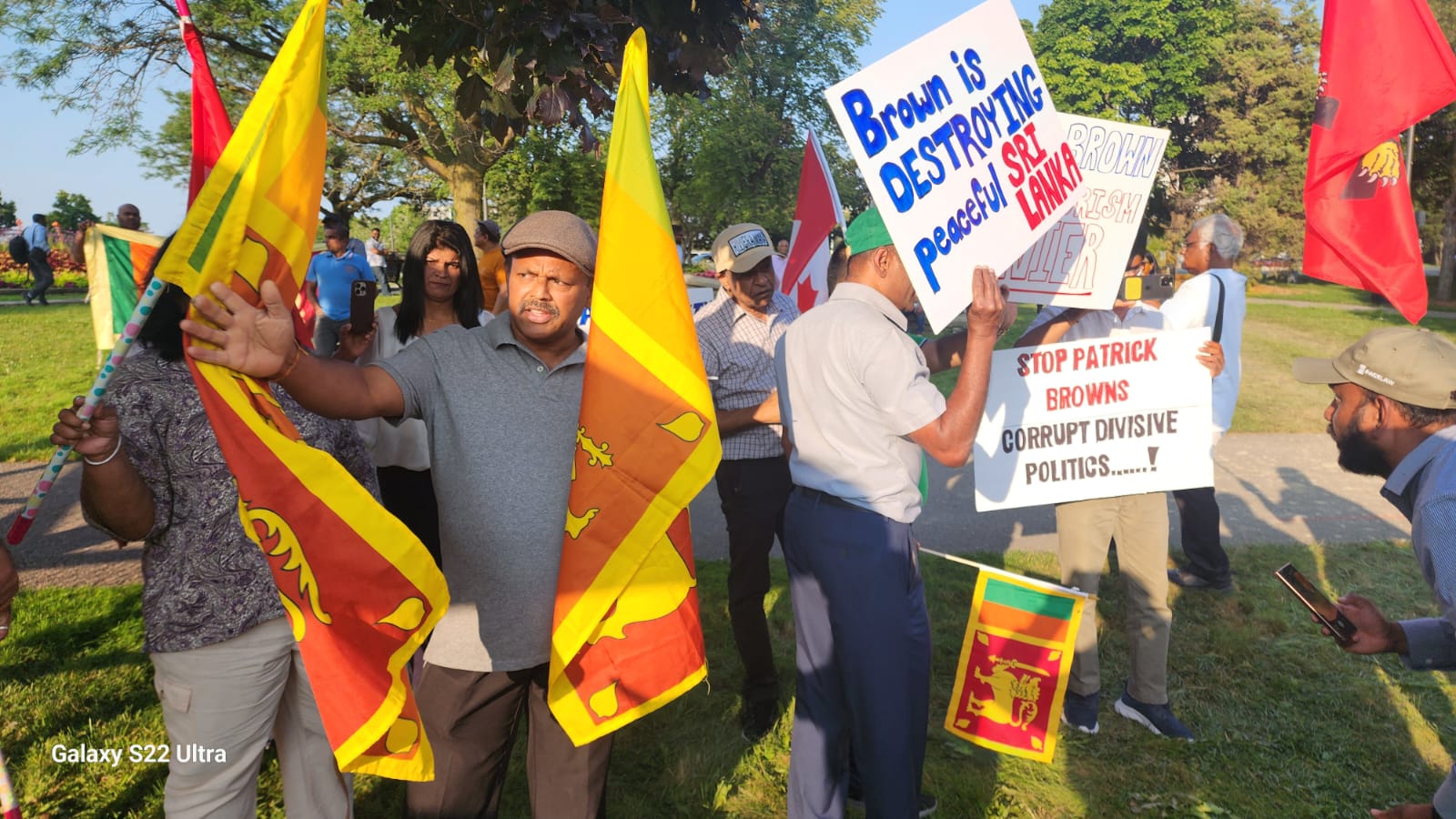


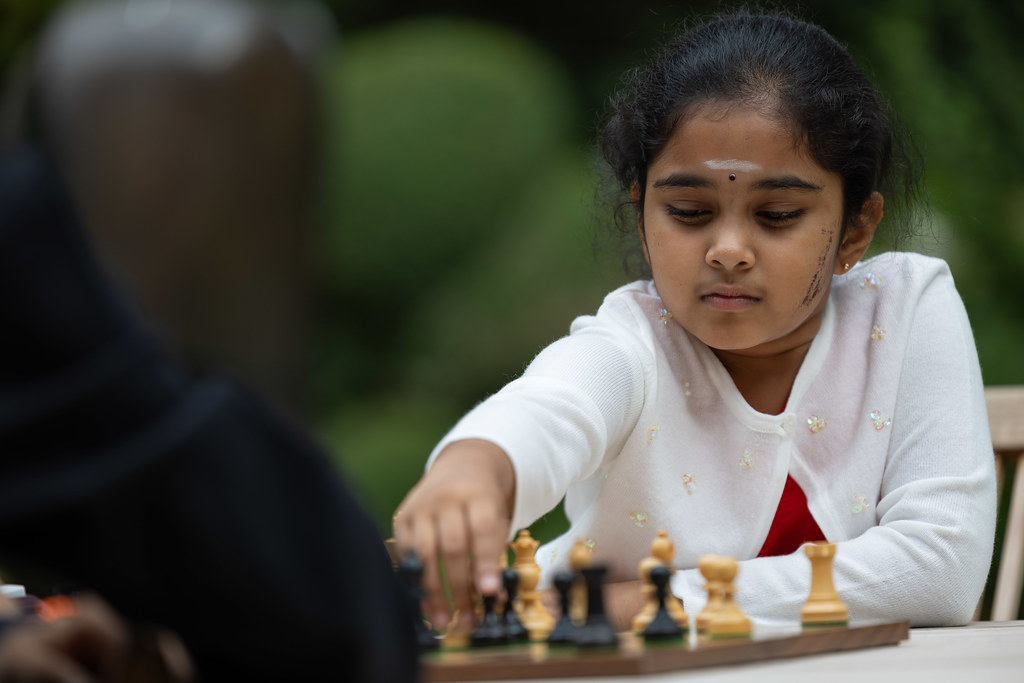

 A book titled 'Enathu Makkalin Viduthalaikkaga' (translated as 'For the Liberation of My People'), a compilation of the Liberation Tigers of Tamil Eelam (LTTE) leader Velupillai Prabhakaran's memoirs from 1984 to 2009, was launched in London, United Kingdom on Sunday 12 November 2023.
A book titled 'Enathu Makkalin Viduthalaikkaga' (translated as 'For the Liberation of My People'), a compilation of the Liberation Tigers of Tamil Eelam (LTTE) leader Velupillai Prabhakaran's memoirs from 1984 to 2009, was launched in London, United Kingdom on Sunday 12 November 2023.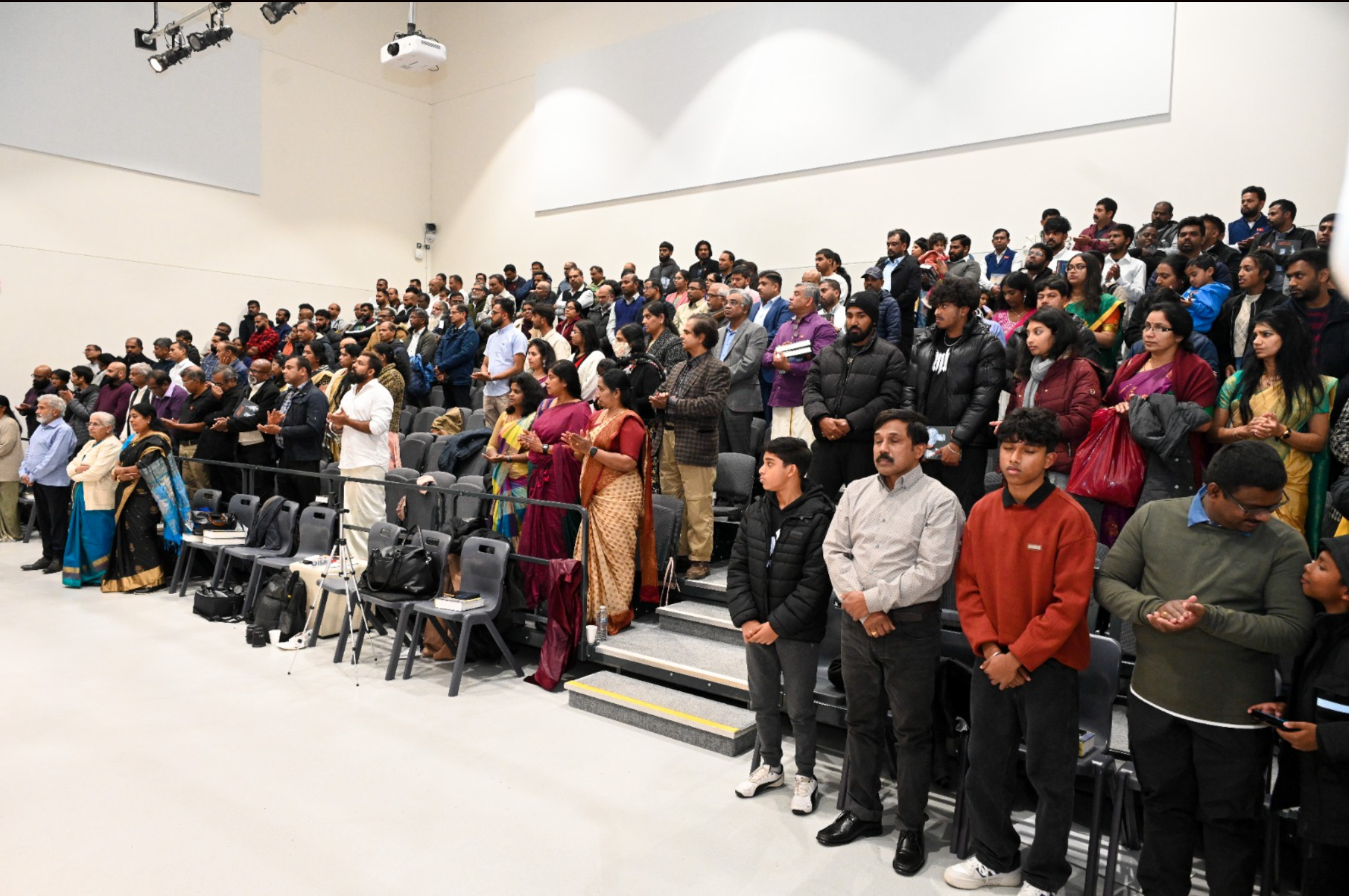 The book release event was initiated by the unveiling of the Tamil Eelam and UK flag.
The book release event was initiated by the unveiling of the Tamil Eelam and UK flag. 
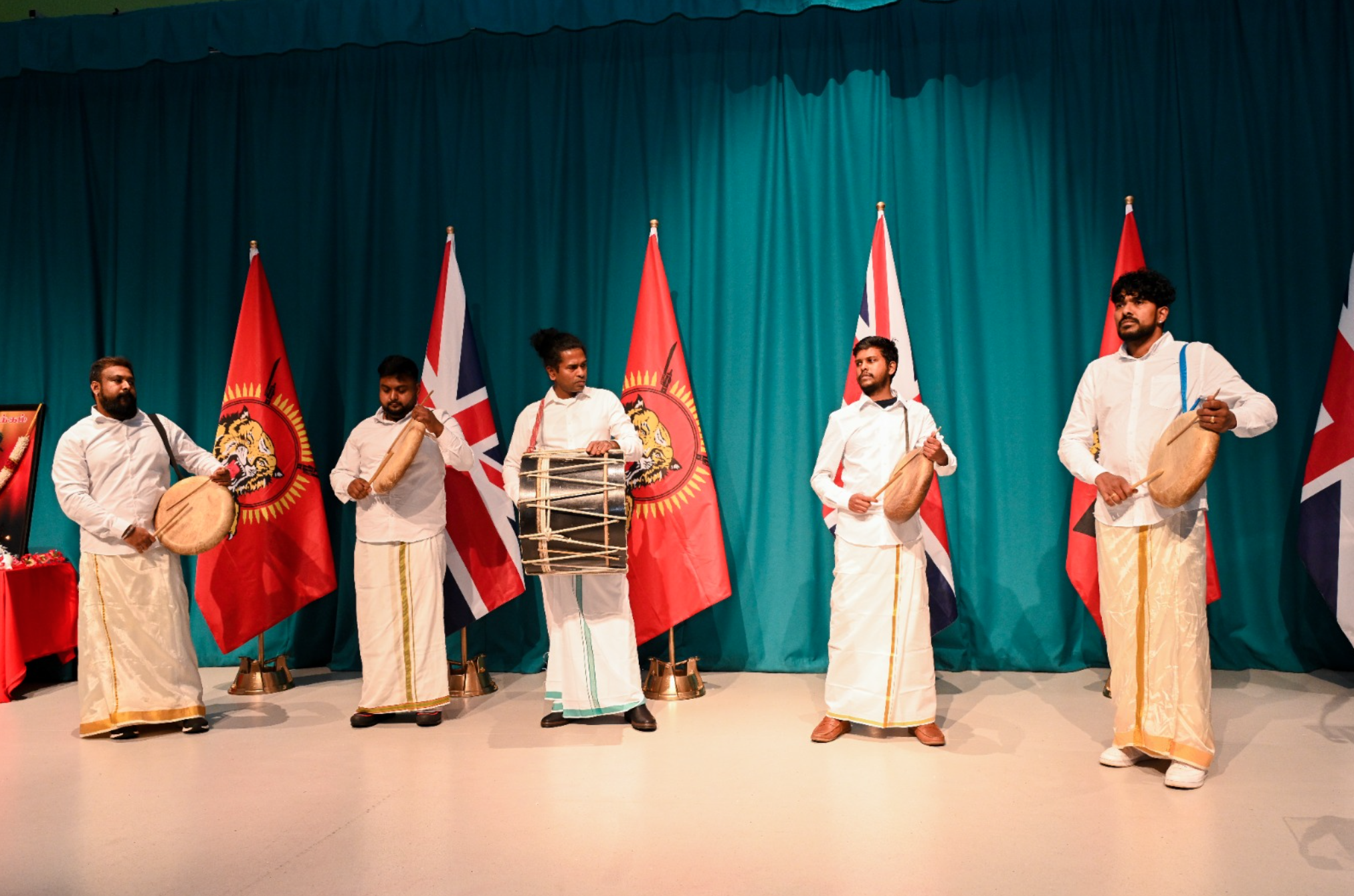 Continuing this, a 'Parai Isai', the Tamil traditional music, was performed by a Parai group. A special Bharatanatyam traditional Tamil dance performance was also performed.
Continuing this, a 'Parai Isai', the Tamil traditional music, was performed by a Parai group. A special Bharatanatyam traditional Tamil dance performance was also performed. 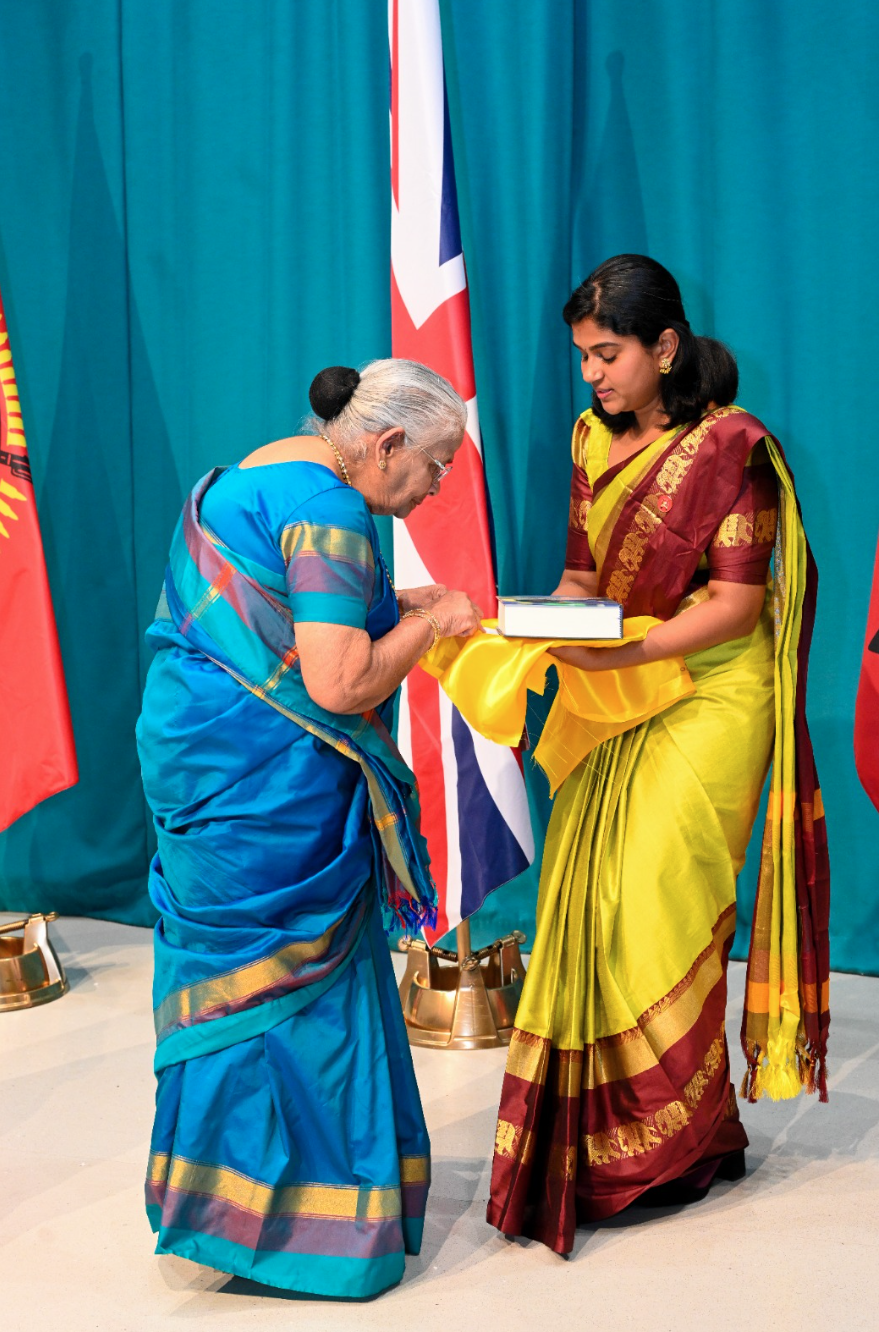
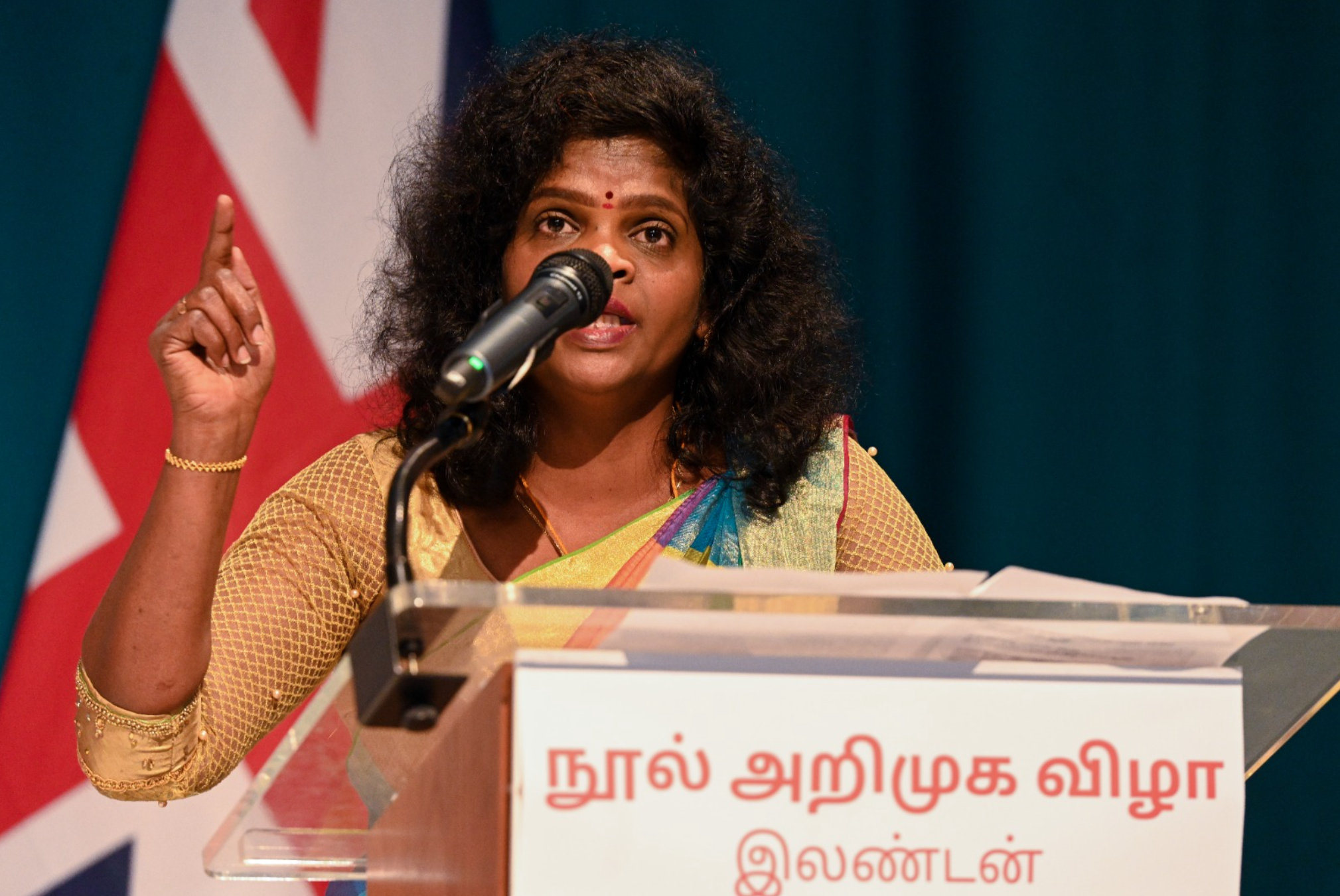 Mrs Kalaivizhi (pictured above), a political activist both in the homeland and in the UK, expressed her views about the LTTE leader. In her speech, Mrs Kalaivizhi pointed out how the LTTE leader had "paved the way for women in Tamil Eelam to become leaders in the struggle for liberation and in the construction of the Tamil Eelam nation".
Mrs Kalaivizhi (pictured above), a political activist both in the homeland and in the UK, expressed her views about the LTTE leader. In her speech, Mrs Kalaivizhi pointed out how the LTTE leader had "paved the way for women in Tamil Eelam to become leaders in the struggle for liberation and in the construction of the Tamil Eelam nation".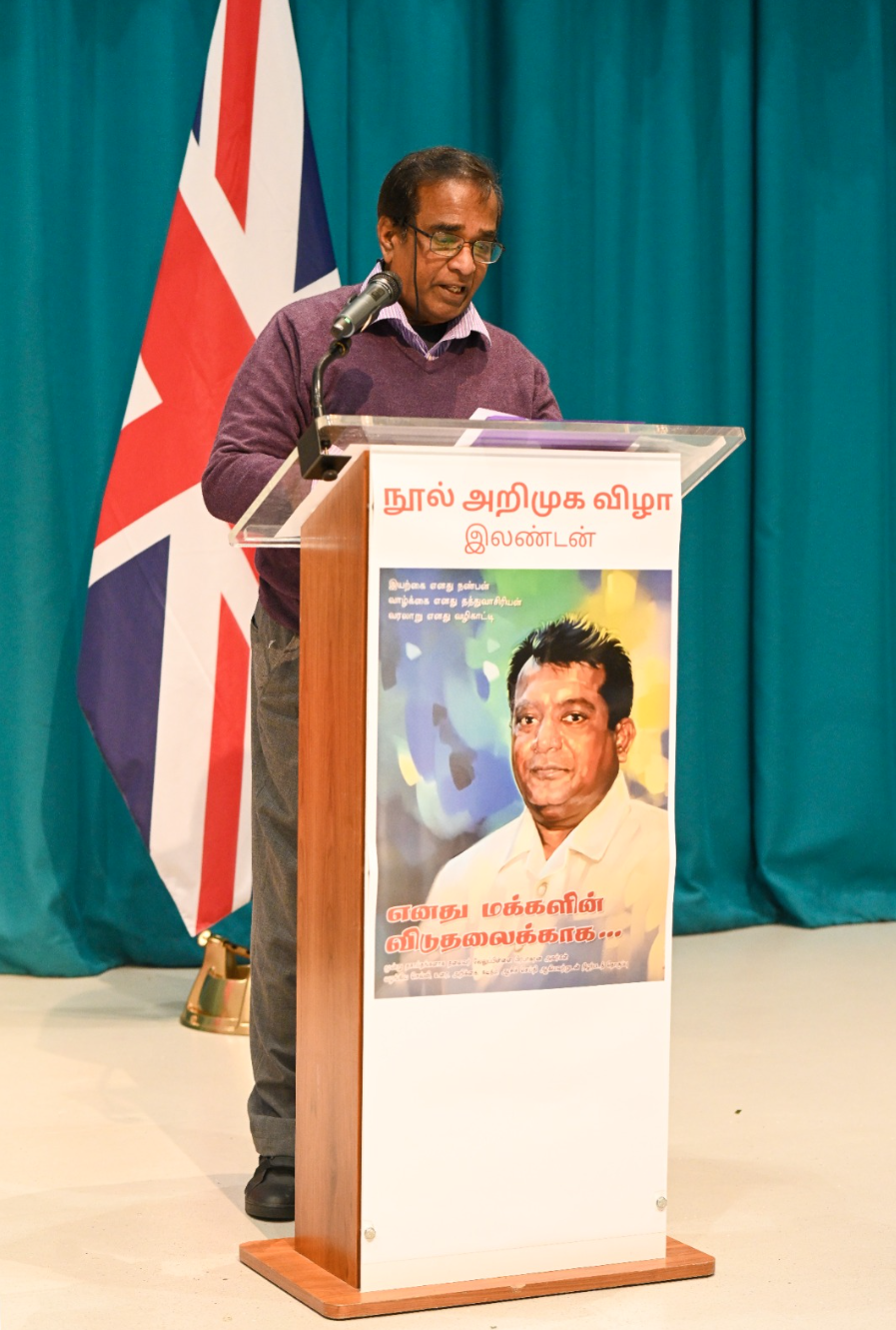
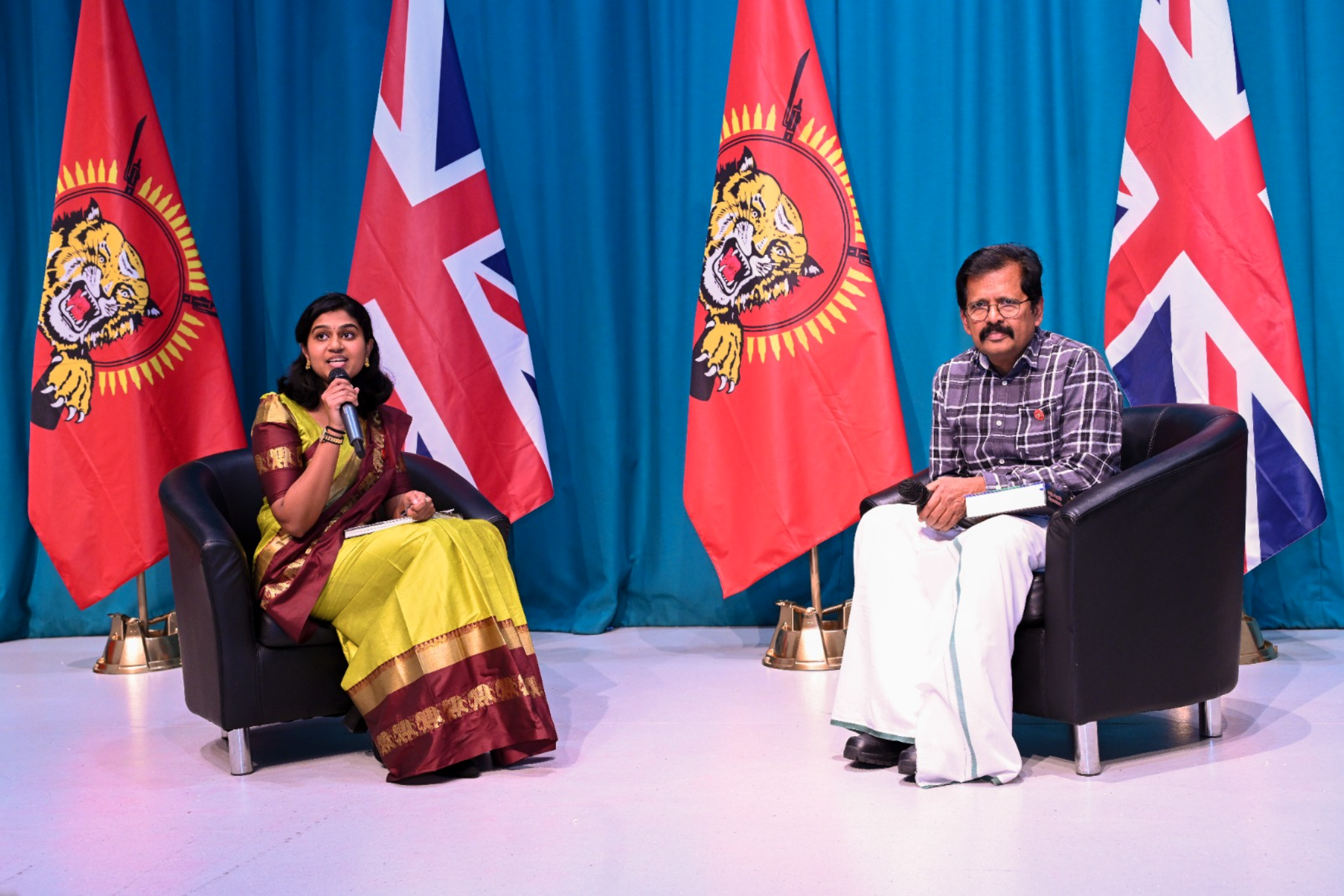 Subsequently, a live discussion with Mr Ponrasa took place regarding the decade-long process of researching and compiling the book. In this discussion, he not only acknowledged the challenges he had faced in producing this piece but also mentioned that his inspiration to compile the LTTE leader's memoirs was seeing a compilation of South African anti-apartheid activist and politician, Nelson Mandela's words, on his trip to the jailed in which Mandela was imprisoned. He also stated that S. P. Thamilselvan, the head of the political wing of the LTTE, had requested Mr Ponrasa to take the initiative to compile the leader's words into a book.
Subsequently, a live discussion with Mr Ponrasa took place regarding the decade-long process of researching and compiling the book. In this discussion, he not only acknowledged the challenges he had faced in producing this piece but also mentioned that his inspiration to compile the LTTE leader's memoirs was seeing a compilation of South African anti-apartheid activist and politician, Nelson Mandela's words, on his trip to the jailed in which Mandela was imprisoned. He also stated that S. P. Thamilselvan, the head of the political wing of the LTTE, had requested Mr Ponrasa to take the initiative to compile the leader's words into a book.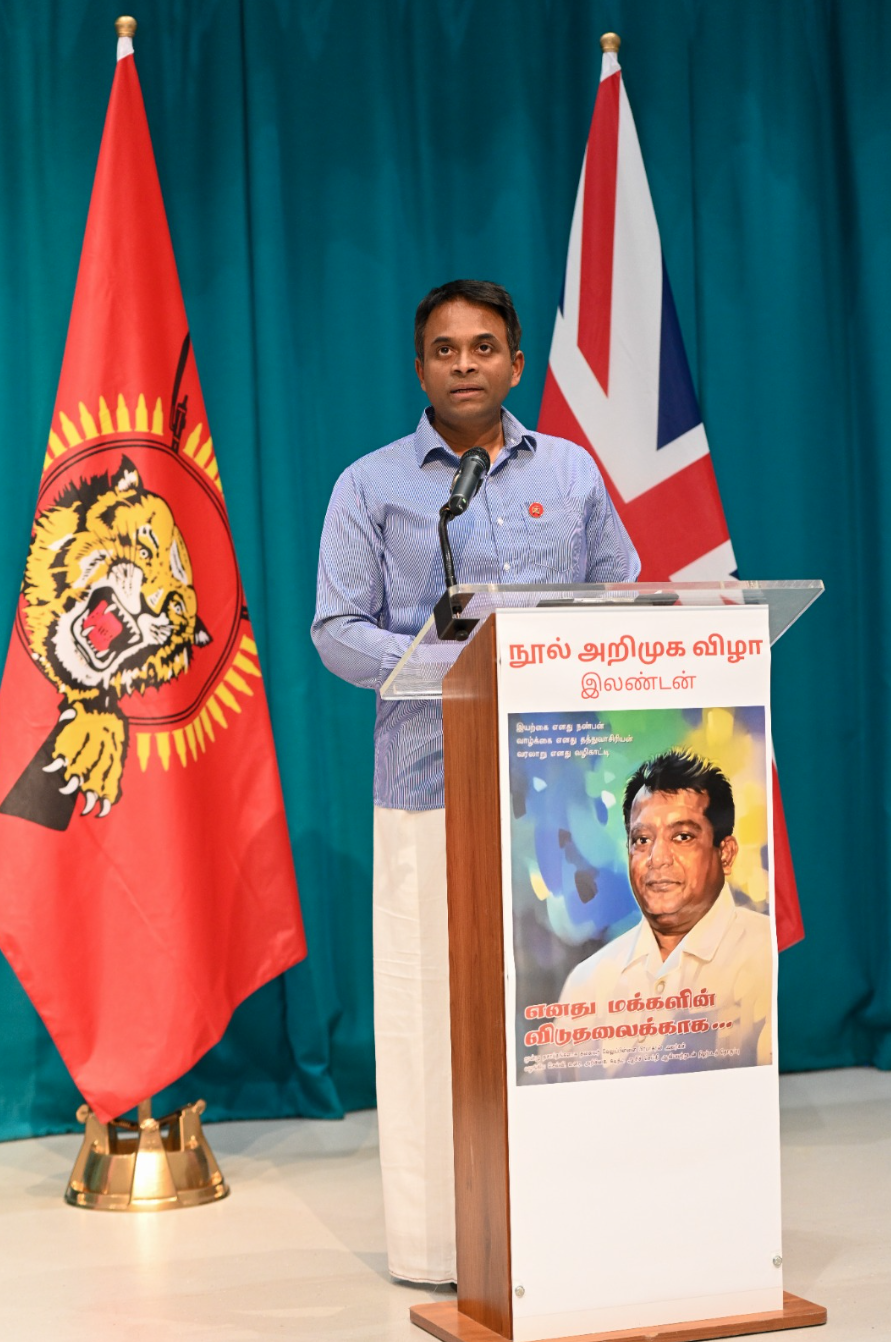

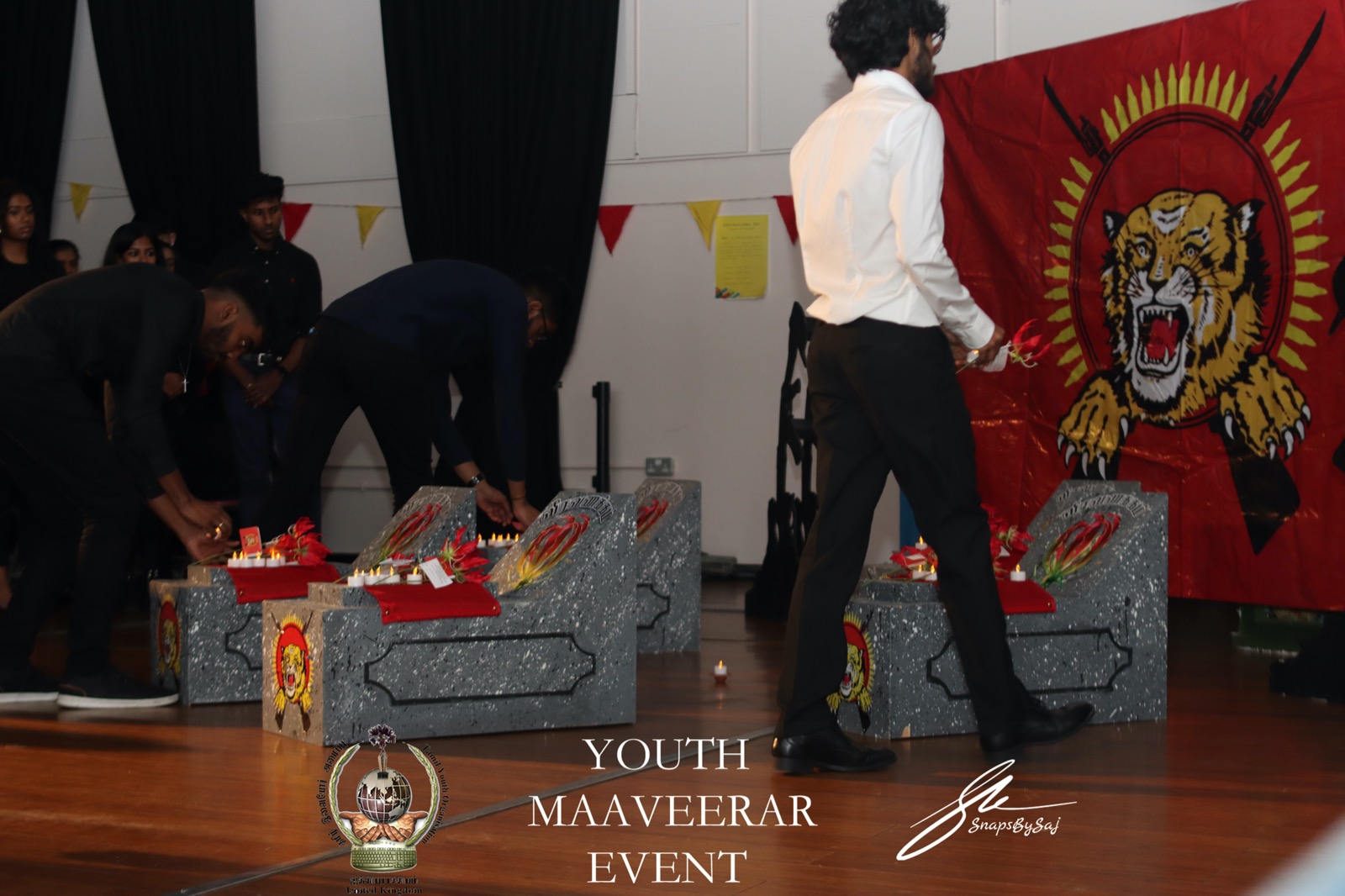
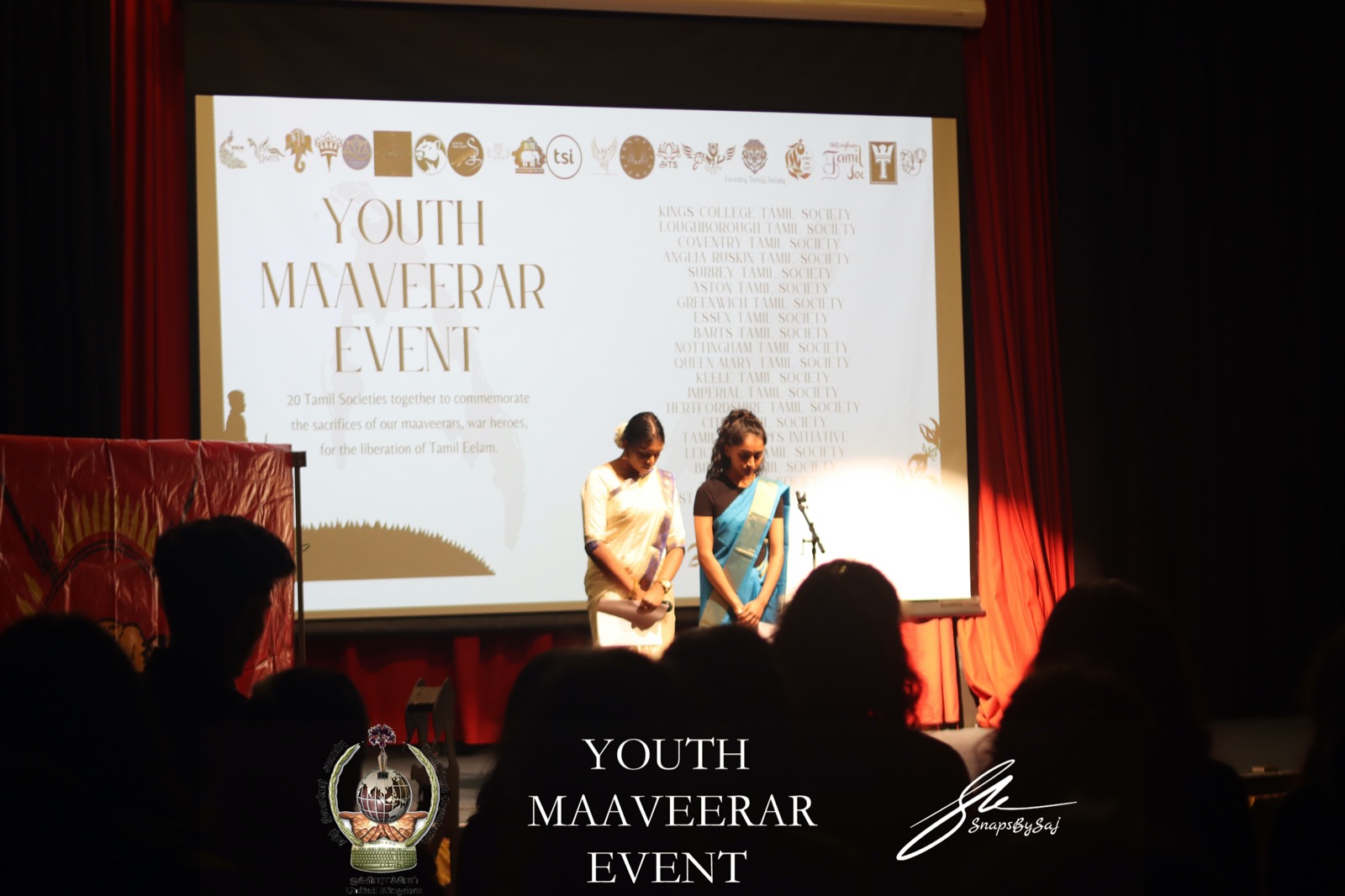
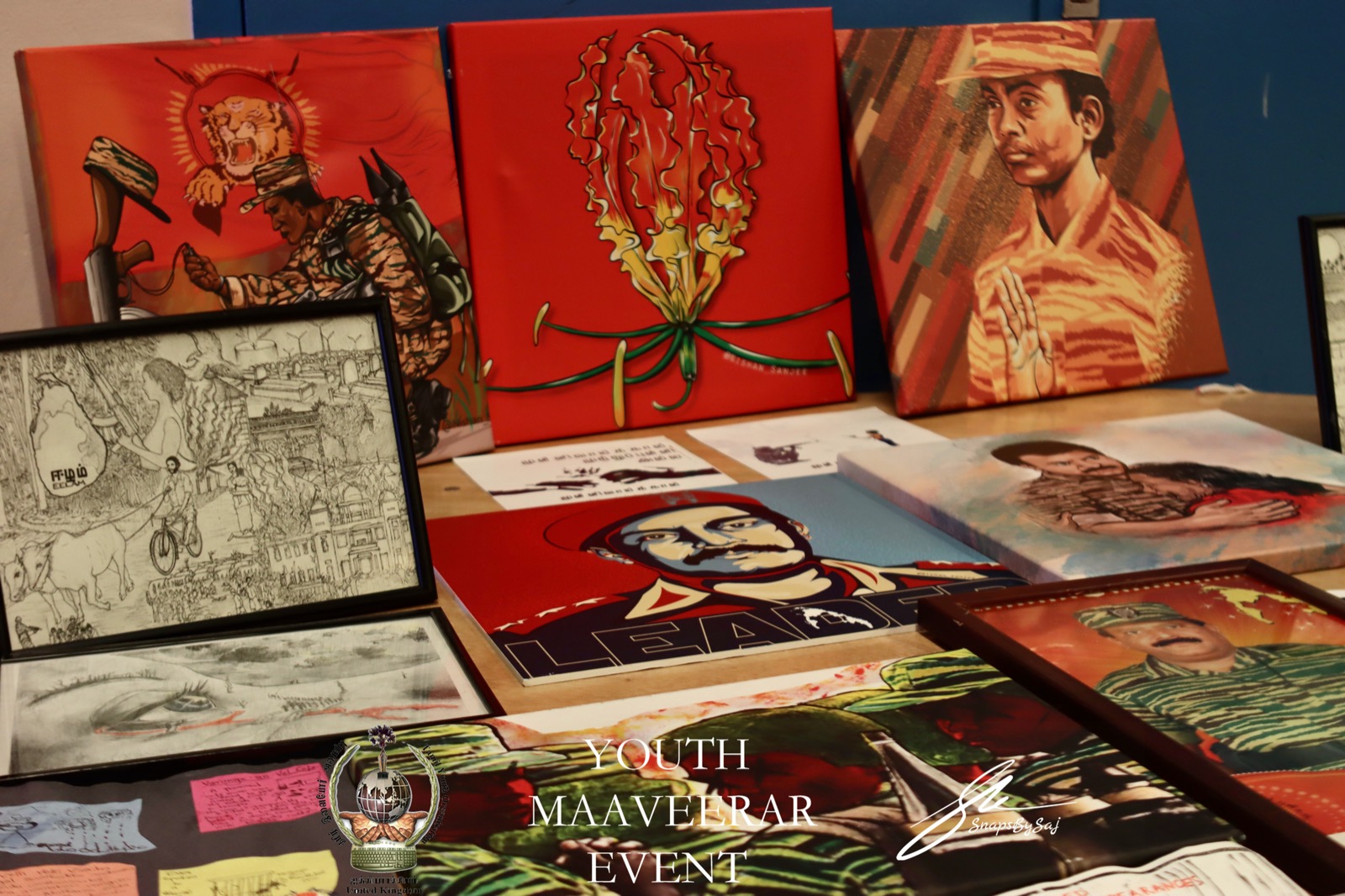
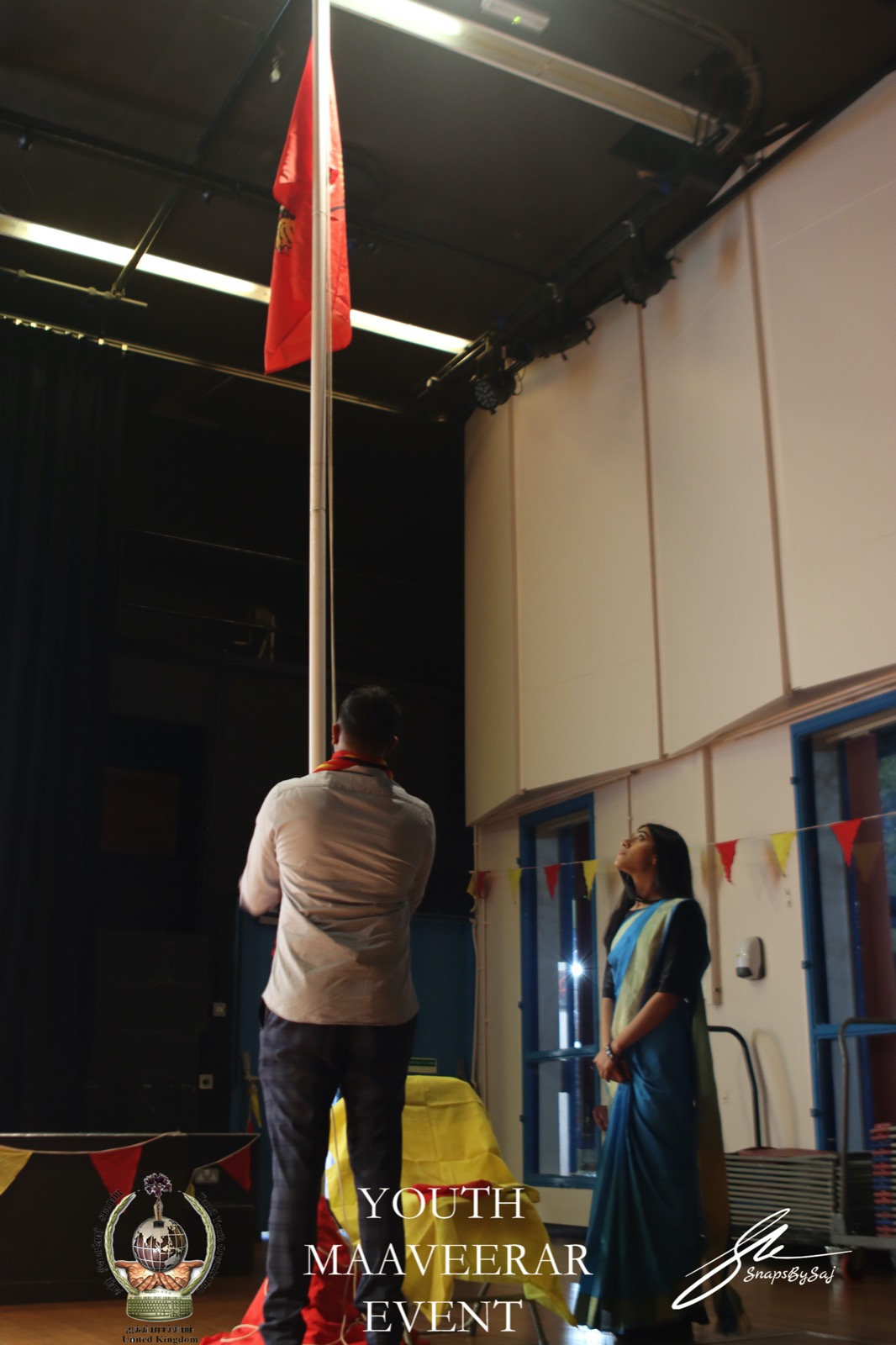
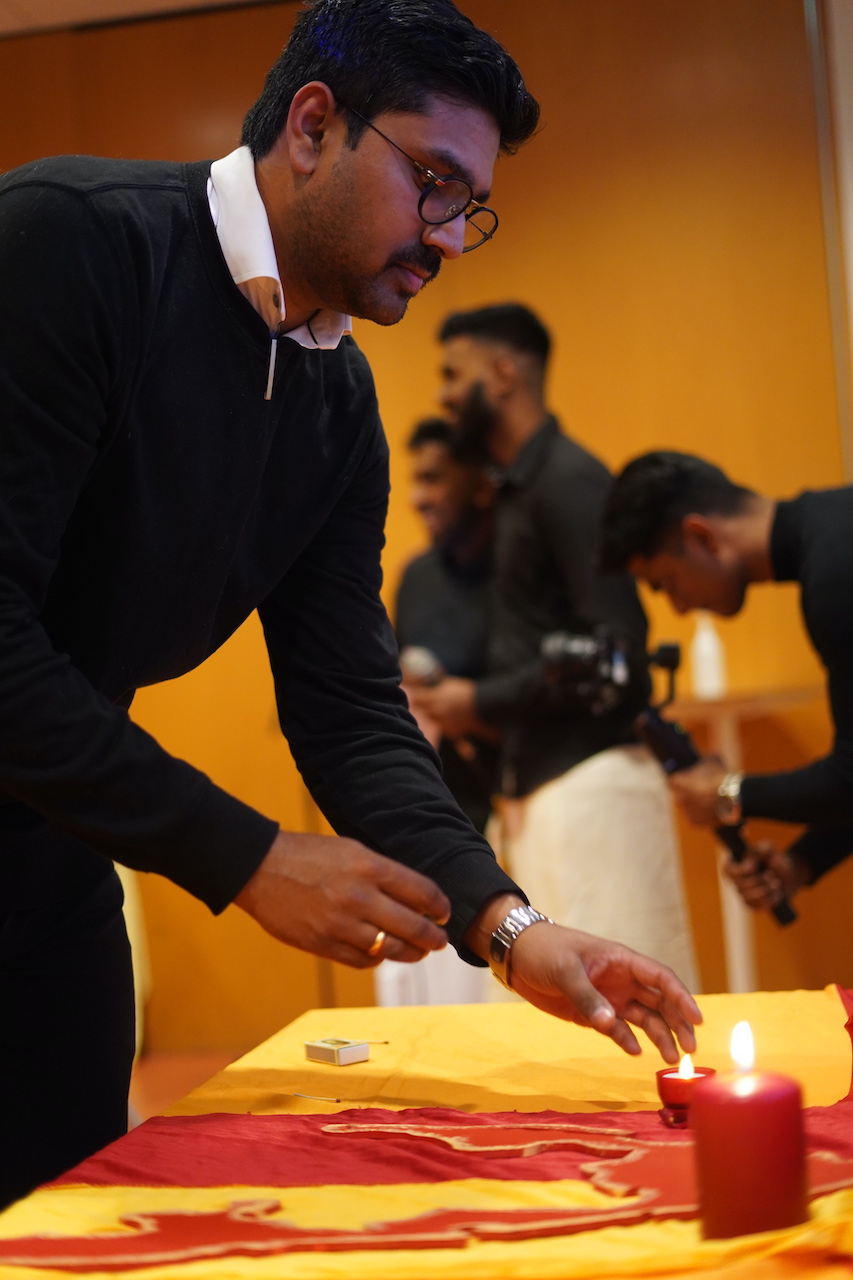 In the lead up to Maaveerar Naal, Tamil university students across the Denmark held events to commemorate those who sacrificed their lives in the Tamil struggle for freedom.
In the lead up to Maaveerar Naal, Tamil university students across the Denmark held events to commemorate those who sacrificed their lives in the Tamil struggle for freedom.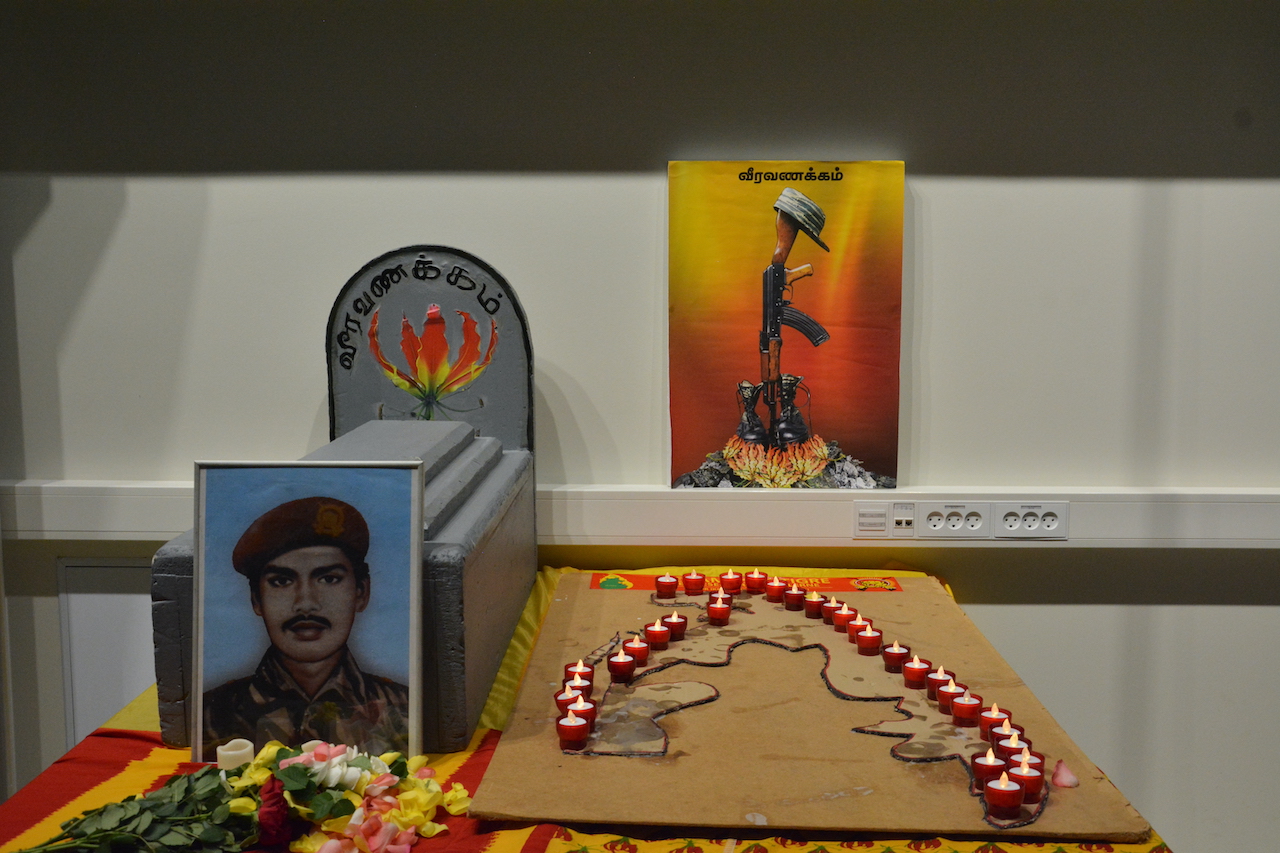 The remembrance event, ‘Youth Maaveerar Naal’, saw theatrical dance performances, poems, songs, and speeches dedicated to the lives sacrificed in the liberation struggle.
The remembrance event, ‘Youth Maaveerar Naal’, saw theatrical dance performances, poems, songs, and speeches dedicated to the lives sacrificed in the liberation struggle.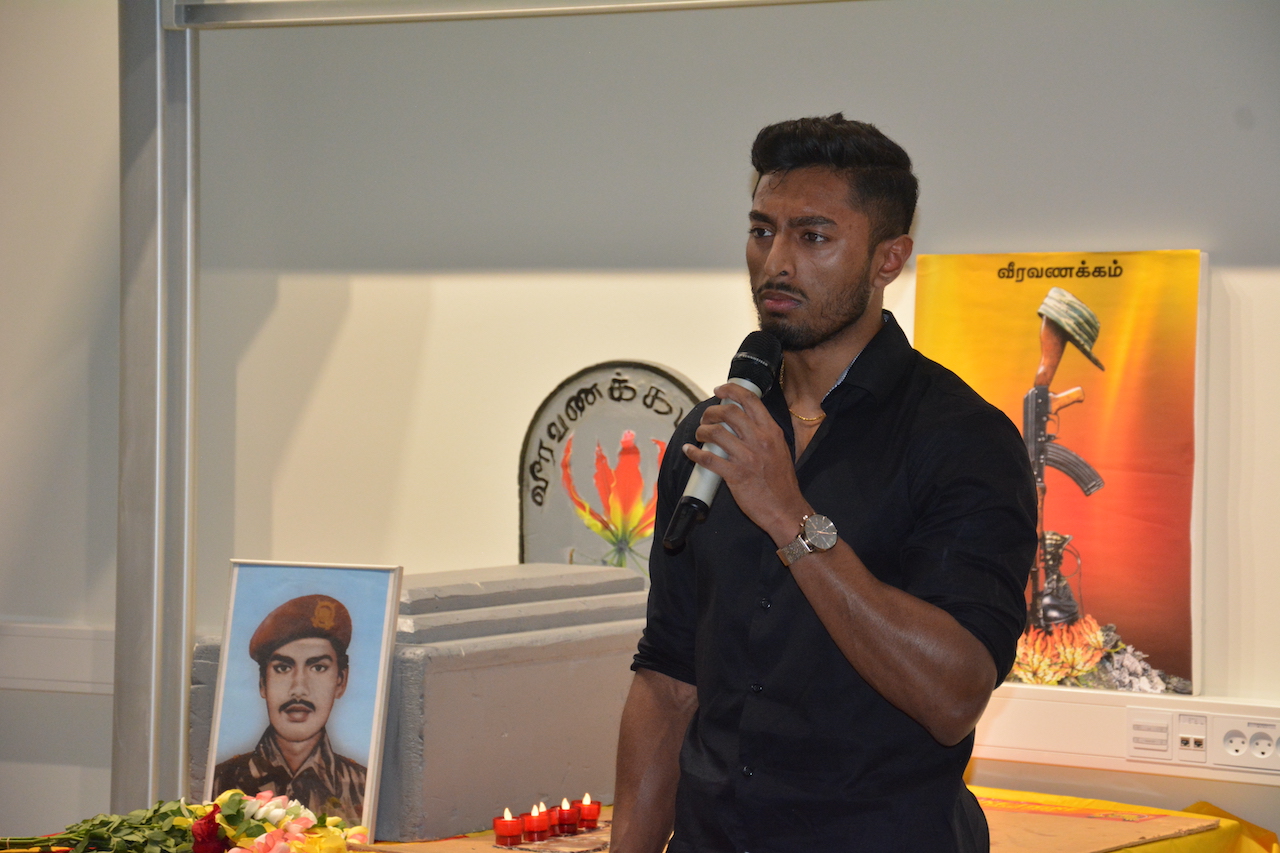 In speeches, the students recognized the importance of the next generation of the Tamil diaspora carrying on the “dreams of the Maaveerars” and “pursuing liberation.”
In speeches, the students recognized the importance of the next generation of the Tamil diaspora carrying on the “dreams of the Maaveerars” and “pursuing liberation.”